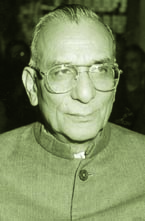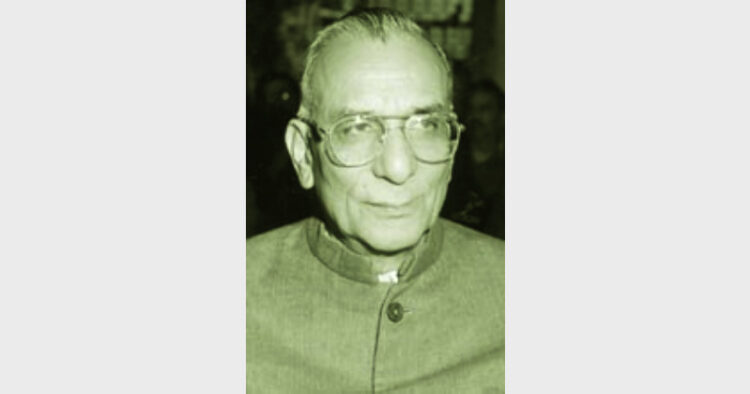DD distorts discourse and telecasts during elections?
By Shyam Khosla
 Our public broadcaster did regain some credibility as a source of serious news in an era of 100-plus news channels, largely because most privately-owned channels are dishing out frivolous and non-serious stuff. A perceptive viewer once remarked that if you watch a privately-owned news channel for full one hour, you would still be in dark about what is happening around you; you are more likely to be better informed if you watch news on Doordarshan (DD) for 15-20 minutes.
Our public broadcaster did regain some credibility as a source of serious news in an era of 100-plus news channels, largely because most privately-owned channels are dishing out frivolous and non-serious stuff. A perceptive viewer once remarked that if you watch a privately-owned news channel for full one hour, you would still be in dark about what is happening around you; you are more likely to be better informed if you watch news on Doordarshan (DD) for 15-20 minutes.
In short, DD shines over other news channels not because it is objective but largely because it has no reason to treat news as entertainment in search of higher TRPs. We all know what kind of autonomy our public broadcaster enjoys. It is, therefore, not surprising that its editorial executives are always conscious of its “duty” to project the government/ruling party view point at the cost of objectivity even while telecasting news.
Having got used to this slant, we take this in our stride. However, DD’s partisan role is more obvious and irritating during election campaigns. For example, it you watched the DD news broadcast during the on-going elections in five states, you would have noticed that it dutifully telecasts campaign speeches by the Prime Minister, Sonia Gandhi, Rahul and his sister Priyanka day after day and just mention in passing the names of one or two non-Congress leaders who campaigned without telling watchers the major points they made. This is our public broadcaster’s notion of balanced reporting of election campaigns. Is the Election Commission keeping an eye over DD election coverage to ensure level playing field for all political parties. Or is the Commission too busy covering the elephants in UP?
Doordarshan’s prime time discussions on national and international issues are conducted professionally, are informative and, at times, educative. Unlike the slang matches between political leaders on private channels in which the anchors act like prosecutors, the DD discussions are sober and well-rehearsed. However, elections come, and the DD’s “neutrality” takes the back seat. Consequently, the discussions on trends and prospects in polls become less objective. Of course, DD takes care not to involve political leaders in these discussions. It, however, carefully chooses its guests from among journalists to ensure that the Congress party’s view is more than adequately represented. One or two of the panelists are permanent fixtures presumably because of their proximity to the Congress party in addition to their status in the profession. Leading questions are asked to ensure that under the veneer of objectivity the message that the Congress is on the winning spree goes out to the electorate. Is there no way the Election Commission can ensure that various view points are represented in these election-related discussions, especially on the eve of/or the day of polling.
The Election Commission is a Constitutional authority that has in recent years tried to project the image of being robustly independent and a model for other constitutional authorities. However, at times the Commission seems to over-step its authority and behaves like the “real government” during elections. In the process, even on-going development projects are disrupted or delayed. Worse, it is so arrogant that it brushes aside even genuine concerns of political parties and governments.
A case in point is Commission’s decision to hold elections in the hilly state of Uttarakhand in the wintry month of January. Uttarakhand Government’s repeated requests to postpone the polls for a month or so were rejected out of hand. The result was there was almost no election campaign in large parts of the state because of extreme cold and snowfall. This deprived the parties to reach out to the voters to explain to them their position on vital issues. Elections are a powerful instrument to politically educate the electorate. Nothing should be done to disrupt or derail this process. The Election Commission did precisely that.
The Chief Election Commissioner has now hailed the 65 per cent polling in the hill state as the proof of the correctness of its decision to hold elections in January and calls for a celebration. Fortunately, the polling day turned out to be sunny otherwise a majority of registered voters might not have been in a position to cast their votes. That would have been a sad day for democracy. Instead of celebrating 65 per cent polling, the CEC needs to do some introspection. The poll percentage might have gone up to 70/75 if the polling were held in March with Goa and the last round in UP. Who has gained by the low polling in the state?
The question being asked in political circles is what was EC’s compulsion for holding January elections in the hill state in view of the fact that the present assembly’s term ends in second half of March 2012. Was this done to accommodate the desire of the Congress party that was obviously keen to deprive the Chief Minister, who had taken over only three months back, more time to consolidate his party’s position in the far flung areas of the state? Interestingly, the Congress party had welcomed early polling in the state. The Commission may dismiss these reports as mere speculation but the fact remains that the conduct of the Commission has raised doubts in public mind about its neutrality and objectivity.
People have not forgotten that a former Chief Election Commissioner had joined the Congress party, entered Parliament and was sworn in as a Cabinet Minister. (Incidentally, the person concerned was widely respected as a bureaucrat but lost much of the goodwill as a Minister). This had created a flutter in political circles and raised questions about desirability of ECs and CECs joining political parties after retirement.
There is a strong case for the Parliament to enact a law to debar Election Commissioners and Chief Election Commissioners contesting elections after retirement or accepting any public office. This would ensure that persons holding such high offices wouldn’t be looking for post-retirement benefits and would act as per their conscience and the law. The Election Commission has expressed its concern over certain senior civil and police officers contesting elections immediately after seeking retirement and has recommended to the Government that senior government officers should have a cooling period after retirement before they are allowed to jump in the electoral politics. Will Election Commission be generous enough to propose a more stringent measure for its retiring members?
It is high time that the procedure to appoint Election Commissioners is reviewed in the light of unhealthy experience. The present system has led to appointment of politically-aligned persons to the Election Commission in more than one case. In order to eliminate the possibility of partisan persons getting into the authority assigned with the highly sensitive task of holding free and fair elections, the procedure for appointment of CVC may be replicated for appointment to the Commission. Let there be bi-partisan committee to select an Election Commissioner.?














Comments